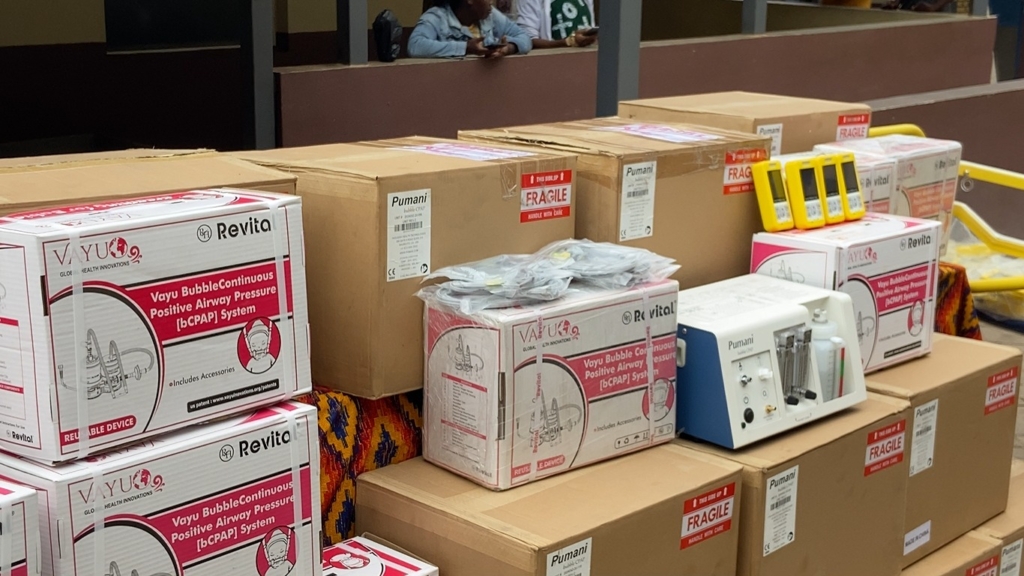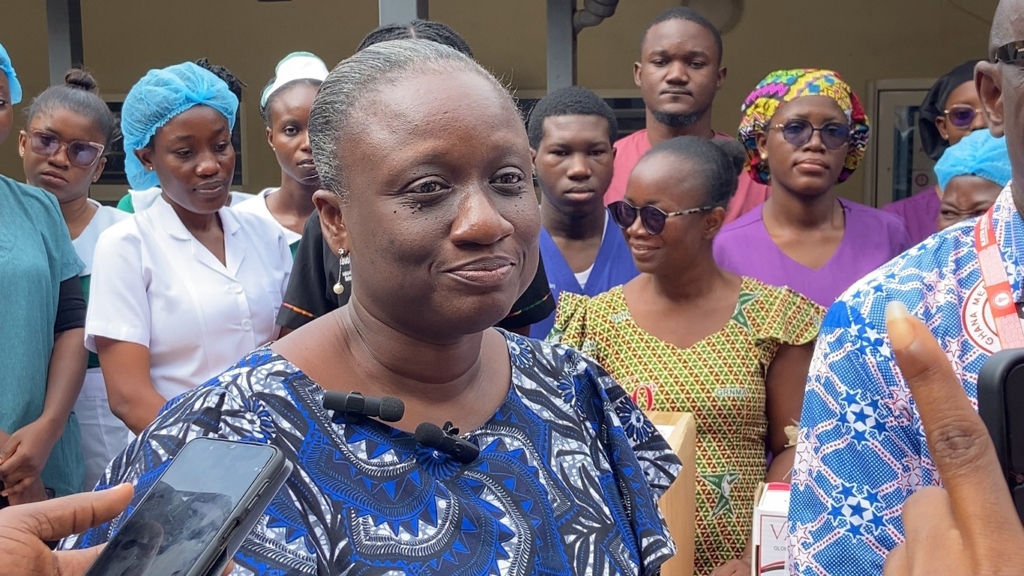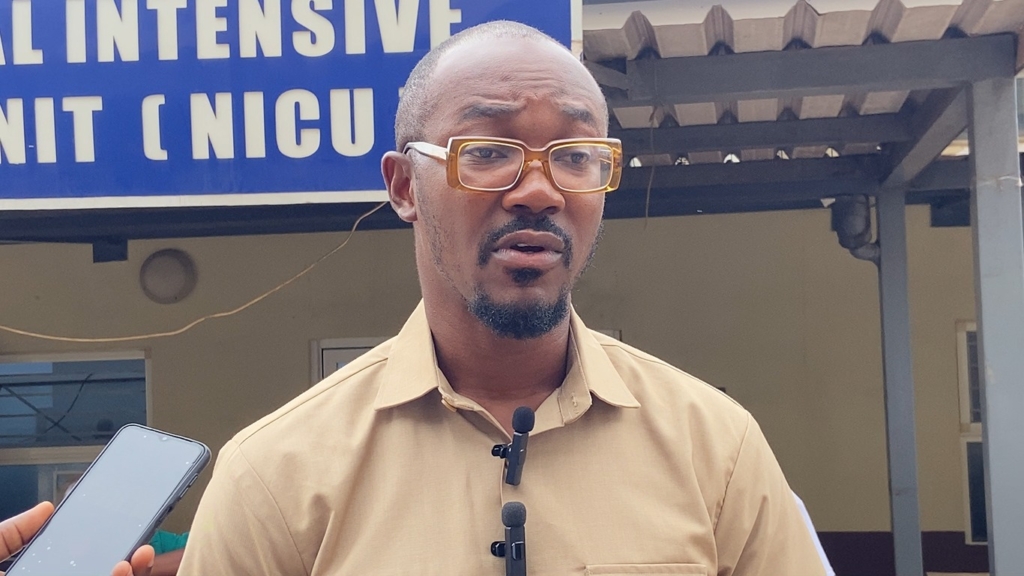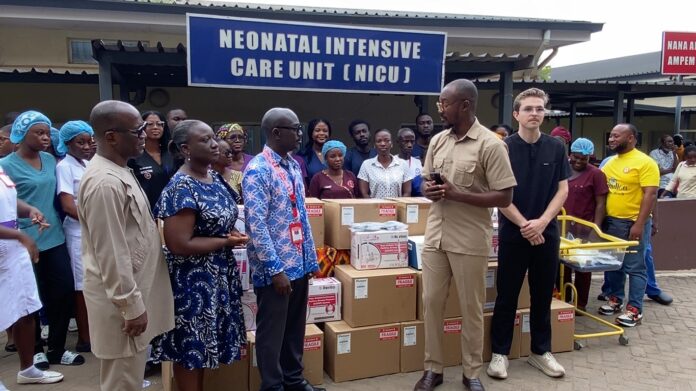The Komfo Anokye Teaching Hospital has received support to reduce the high risk of blindness due to retinopathy of prematurity (ROP), a condition worsened by limited early screening and inadequate neonatal monitoring.
With only 20 monitors for over 100 babies, and just four breathing devices in an 18-bed preterm ward, premature infants could be left undiagnosed during admission, risking permanent visual impairment or blindness.
The Africa Eye Imaging Centre and the Zero Blind Babies have handed over essential equipment to ease the burden and prevent avoidable disabilities.

In many health facilities, neonatal care is hindered by lack of infrastructure and equipment.
At the Neonatal Intensive Care unit (NICU) of the Komfo Anokye Teaching Hospital, these challenges present a dilemma of how many possible cases of retinal blindness have been left off the hook.
Retinopathy of prematurity (ROP) is an eye disease that affects premature babies, usually from abnormal blood vessels to grow in the retina, which can lead to blindness.
Neonatologist and second head in charge of the NICU at KATH, Dr. Naana Wireko Brobbey, explained the ordeal, needing urgent investment.

“Premature infants are prone to blindness. There are high possibilities that we missed quite a number of premature infants who are even blind or have visual impairments now. Unfortunately, as of now, we have less than 20 monitors.
“So, if you have over a hundred babies on admission, you have to use your discretion to choose which ones need the monitoring the most. A Sick baby means immediate monitoring. With an 18-bed acute preterm ward capacity, there are only four devices to provide breathing support,” she said.
Presently, the KATH NICU has received 20 neonatal oximeter probes, 20 lifebox pulse oximeters, 10 Vayu bubble CPAP and 15 Pumani Bubble CPAP worth US$66,450.
The equipment provided through the benevolence of Africa Eye Imaging Centre, an NGO that prevents retinal blindness using telemedicine, in collaboration with Zero Blind Babies, will assist with monitoring and protection of the babies’ eyes and overall health.

“It’s been a great opportunity. So far, we have screened a thousand babies and almost 30 of them have been treated under the free treatment program. So, these twenty monitors come in handy. And it will make a difference in the practice and outcomes of care for premature infants. Having many of these breathing devices will save more lives,” Dr. Naana said.
Africa Eye Imaging Centre partnered with KATH in 2024 to pilot the first ROP screening program of its kind in sub-Saharan Africa, using a portable retinal imaging camera worth $30,000.
More than 3,000 eye screenings have been conducted for preterm babies across the Ashanti Region, with over 25 babies successfully treated.
CEO of Africa Eye Imaging Centre and a consultant ophthalmologist at KATH, Dr. Akwasi Agyeman Ahmed, says the donation is an advanced intervention to ensure holistic prevention and treatment for child blindness.
“Retinopathy is found in babies born weeks before. Such babies born early, in the eye, the retina are not well developed. So, their eyes need to be regularly checked so they don’t get blind.
“So, for the past year, we have been screening all the preterm babies, born in the Ashanti region. So our donation is a step further to handle the essentials, in line with saving the lives of more babies,” he stated.
DISCLAIMER: The Views, Comments, Opinions, Contributions and Statements made by Readers and Contributors on this platform do not necessarily represent the views or policy of Multimedia Group Limited.
DISCLAIMER: The Views, Comments, Opinions, Contributions and Statements made by Readers and Contributors on this platform do not necessarily represent the views or policy of Multimedia Group Limited.


